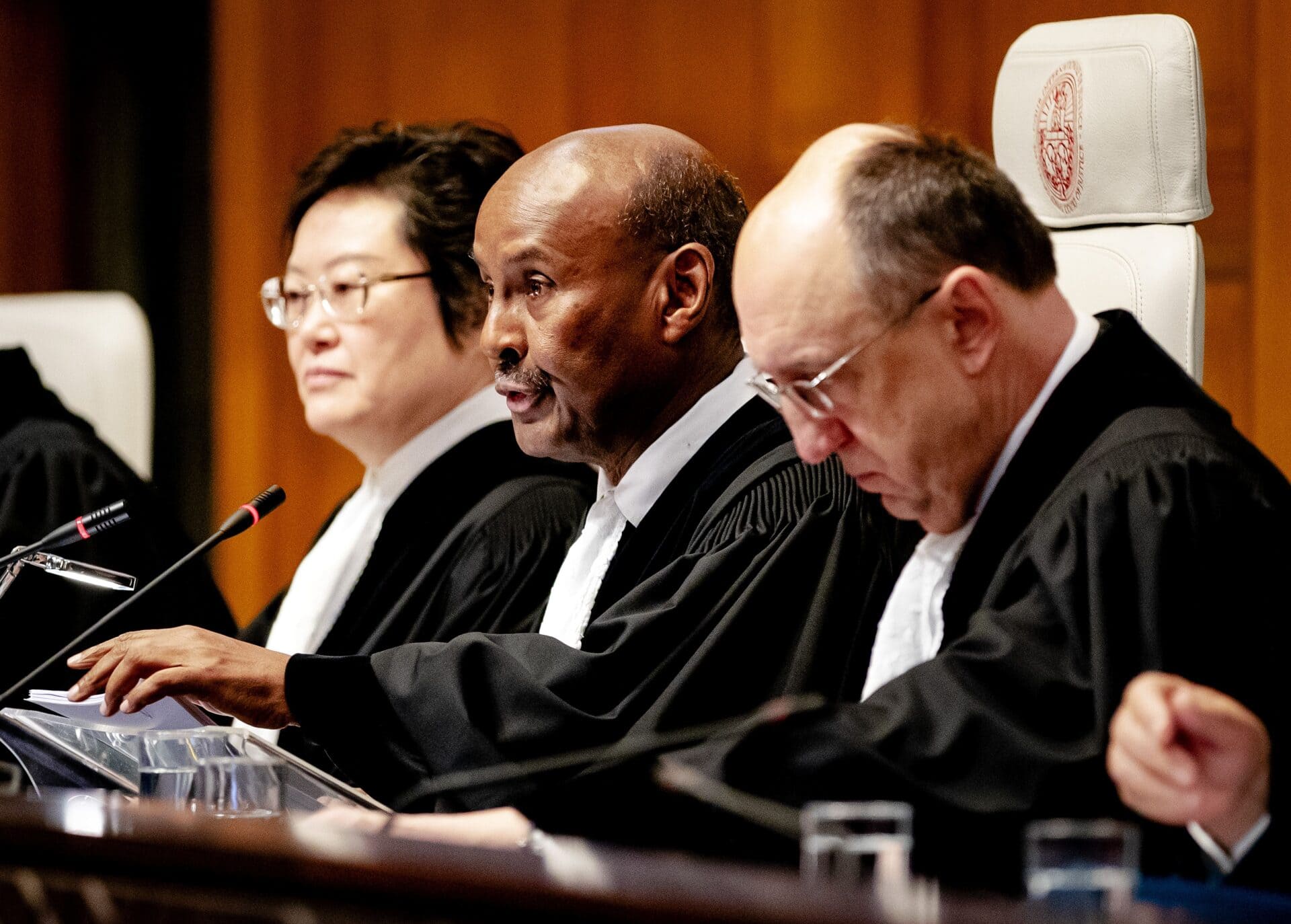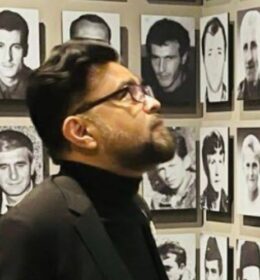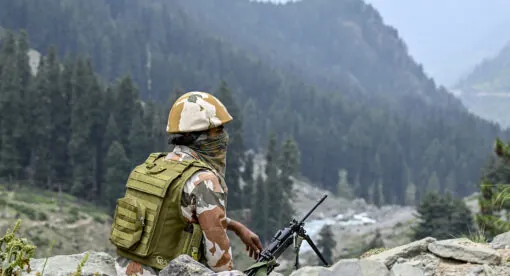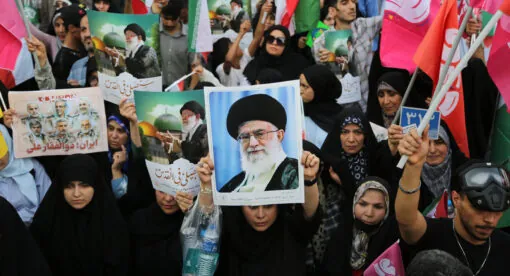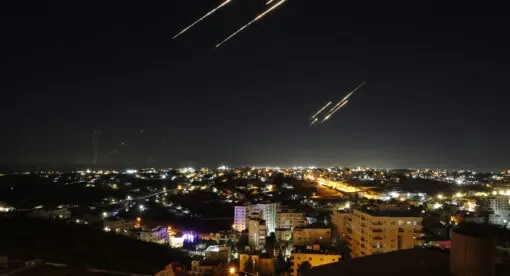Download the essay here
Introduction: The Landscape of Access to Justice
The Rohingya people have faced genocide and crimes against humanity for the past several decades, mainly perpetrated by the military junta in Myanmar (Burma). However, it was primarily due to the massive outbreak of violence against the Rohingya in August 2017 that a wave of legal cases was filed regarding these crimes. The actions taken to date include investigations and lawsuits that have been filed in national and international courts against the government of Myanmar and the leaders of the military junta. As of this publication, some legal matters have concluded, and some are still pending.
Two main investigations have taken place since August 2017. The first is the Independent International Fact-Finding Mission on Myanmar. The Fact-Finding Mission concluded that the August 2017 events had genocidal intent and described in detail a litany of human rights violations perpetrated against the Rohingya and minority groups including the Kachin. Another investigation, not as often discussed, was the Rosenthal report, which examined some of the failures of the United Nations to appropriately respond to the Rohingya situation.i
Lawsuits have been the main tool used to examine the Rohingya situation. Quickly after the 2017 genocidal purge, a lawyer in Australia filed a prosecution against then-State Counsellor Aung San Suu Kyi, which was dismissed by the Australian attorney general. The International Criminal Court prosecutor opened a preliminary investigation into the 2017 exodus into Bangladesh. The International Criminal Court Office of the Prosecutor is continuing its investigation. Rohingya survivors have been participating in a universal jurisdiction case in Argentina. Prior to the 2021 coup in Myanmar, a Rohingya widow filed a case before the Myanmar Human Rights Commission, but no information has been reported since the filing. In 2023, another universal jurisdiction case was filed in Germany, which included Rohingya survivors.
One of the most well-known matters that has been brought forward is the legal proceedings at the International Court of Justice filed by the government of Gambia, a member of the Organization of Islamic Cooperation. In The Gambia v. Myanmar, Gambia has alleged that Myanmar breached its obligations under the U.N. Genocide Convention based on the events of August 2017. A key moment in the proceedings so far was Gambia’s request for provisional measures, specifically requesting that all genocidal acts stop against the Rohingya and for the preservation of evidence related to the case. The International Court of Justice granted the provisional measures and requested that Myanmar report on its compliance with the order every six months. Objections filed by Myanmar were recently denied by the court, and the international community now waits for the next set of hearings.
Noticeably absent from these lawsuits are corporate actors. Generally, corporations are lesser-discussed actors in the field of international criminal law. Sometimes, routine business can cause a corporation to be viewed as complicit in or aiding and abetting a genocide, which in turn further exacerbates conditions for victims. This policy paper will focus on corporate involvement in Burma and examine four case studies where it could be argued that the industries involved participated in the Rohingya genocide. It will discuss the U.N. Guiding Principles on Business and Human Rights and why the international community must pay greater attention to corporate dealings in the context of genocide. This paper will emphasize the importance of corporate social responsibility and accountability, particularly in light of the Rakhine recommendations.
Kofi Annan Commission – Rakhine Recommendations
In 2016, the Kofi Annan Foundation along with the Myanmar State Councillor’s Office formed the Advisory Commission on Rakhine State (Advisory Commission). The mandate of the Advisory Commission focused on development, peace and reconciliation, security, and humanitarian issues in the Rakhine (Arakan).ii The Advisory Commission traveled extensively throughout the Arakan and met with various leaders, government representatives, and international partners and experts. Prior to the issuance of its final report in 2017, people in the Arakan made several criticisms of the Advisory Commission, and some groups within the Arakan requested that it be canceled.iii
In August 2017, the Advisory Commission produced its final report, “Towards a Peaceful, Fair and Prosperous Future for the People of Rakhine,” which detailed several recommendations. In the introduction, the Advisory Commission calls attention to the “development crisis” in the Arakan:
“The state is marked by chronic poverty from which all communities suffer, and lags behind the national average in virtually every area. Protracted conflict, insecure land tenure and lack of livelihood opportunities have resulted in significant migration out of the state, reducing the size of the work force and undermining prospects of development and economic growth. Movement restrictions on the Muslim population hurt the economy. The failure to improve inter-communal relations, enforced segregation and the simmering threat of violence and instability continue to deter private sector investment.”iv
Later in the report, the Advisory Commission notes the importance of large-scale development projects and special economic zones in the Arakan, which will be created in partnership with the governments of India and China, among others. Many of these projects will require removal of people of the Arakan off their lands.v Civil society representatives reported to the Advisory Commission that they were not being given their “fair share” and that the government’s behavior was “exploitative.”vi
The recommendations the Advisory Commission made with regard to the economic and social development of the Arakan focused on “resource sharing,” compensation for “appropriated” land, reducing barriers to entry for local businesses, empowering women, and climate resilience.vii The Advisory Commission failed to recommend that the government of Myanmar incorporate and emphasize a human rights regime with the corporations it does business with. This was a missed opportunity, particularly given the fact that the U.N. Guiding Principles on Business and Human Rights (Principles) was endorsed by the United Nations Human Rights Council in June 2011. While the Principles themselves are “nonbinding,” the basis for the Principles derives from other U.N. treaties, some of which Myanmar is a party to.
Paper Tiger? Guiding Principles on Business and Human Rights
The Principles are broken into three main areas. The first area is the state’s duty to protect human rights, which is consistent with treaties, conventions, and customary international law. The second area addresses a corporation’s responsibility to respect human rights. This section emphasizes that businesses not undermine a state’s obligation to protect human rights, emphasizes coherence between policy and procedure and human rights, and emphasizes corporate due diligence. The last area covers access to remedies, specifically focusing on inclusionary methods within the corporate structure to prevent and remedy intentional or unintentional rights violations.
In 2021, the United Nations conducted a review of the Principles and found “governance gaps” that allow “too many instances of business-related abuses across all sectors and regions.”viii The report also found that businesses are employing strategic lawsuits against human rights defenders and critics.ix This parallels the behavior of many states that disregard human rights laws (even ones that are codified in their own national legislation) and silence human rights defenders and critics, despite the existence of the Declaration on Human Rights Defenders (1998).x
When sanctions were lifted beginning in 2012 in Burma, the European Union cautioned the business community to “adhere to the highest standards of business practices,” which included the Principles, Organisation for Economic Co-Operation and Development (OECD) Guidelines for Multinational Enterprises, and EU policy on corporate social responsibility.xi John Ruggie saw an opportunity for business to utilize the Principles, noting, “governments, international bodies, and foreign investors must encourage the government of Myanmar to demonstrate its own commitment to more accountable governance.” As highlighted in the cases discussed below, these instruments appeared to be nothing more than paper tigers. A year before the February coup, Professor Catherine Renshaw examined the Principles and their utilization in Burma. She noted that the country serves as a case study of the challenges of adhering to the Principles in the midst of a democratic transition, when a state has little control over corporate actors.xii
The Complicity Factor? The Role of Corporations During Genocide
This paper highlights four important court cases with regard to the Rohingya genocide and engagement with perpetrators of genocide. These cases serve to emphasize the importance of due diligence practices, pursuing strategies for corporate accountability, and ensuring there is remedy when there is corporate participation/complicity in cases of genocide. The first two corporations involved in these cases, Facebook and Telenor, are considered part of the telecommunications industry. The telecommunications sector was part of Burma’s “ambitious economic, political, and governance reform program” whereby the sector was “liberalized to attract foreign investment, create jobs, support development of the local IT industry, and promote ICT as a catalyst for social and economic change.”xiii In 2013, Human Rights Watch alerted the international community that while internet and mobile technologies “have an enormous potential to advance human rights” and enhance economic growth in Burma, “democratic reforms remain incomplete and the government and its security forces continue to commit serious human rights violations.”xiv Despite the warnings and the conditions in the country, the international community assisted in growing this sector and companies started doing business in Burma.
The third corporation, Daewoo International/POSCO, is involved in the oil and gas sector in the Arakan, namely the Shwe Gas Project. In order to make huge profits from these “vast, untapped reserves of oil and natural gas,” foreign companies are required to partner with local companies to bid, and these companies, in turn, make a profit that benefits the military junta.xv A cautionary tale of the role of oil and gas in genocide is exemplified in Darfur, Sudan. The government of Sudan “cleared” land in 2003 to promote oil development. The people in these areas resisted this operation, and the government responded by massacring scores of people via the Janjaweed armed group. The petroleum exploration and blocs were awarded to the China National Petroleum Corporation.xvi The China National Petroleum Corporation has been and is currently an active participant in the Arakan gas fields, as will be discussed below.
The last examination of corporate involvement in the Rohingya genocide is the British American Tobacco company and Rothmans Myanmar Holdings Singapore, both part of the tobacco industry. While there appears to be no direct link to the Arakan in its business operations, the tobacco industry has continued to prop up the military junta with enormous profits, and some of those who profit belong to active military units assigned in the Arakan.xvii The tobacco industry appears to justify its engagement with the junta despite repeated reports of significant and gross human rights violations.
Facebook (U.S.)
The role of Facebook in the Rohingya genocide has been widely discussed, and Facebook has faced criticism for its “determining” role in the 2017 purge.xviii Perpetrators used the platform to further genocide through hate speech and to plan coordinated attacks. Facebook’s leadership admitted publicly that groups had used its platform to further violence against the Rohingya and that it needed to “get it right.”xix Two Rohingya groups pursued two different avenues of legal recourse against the company. In December 2022, a judge in California dismissed a $1 billion lawsuit that was brought by lawyers claiming negligence and strict product liability.xx The second path, lesser known and discussed, was a complaint filed against Facebook before the OECD.xxi Despite their lack of success through these avenues, Rohingya organizations such as the Arakan Rohingya National Organisation have requested that Facebook pay reparations directly to the Rohingya people.xxii Although these strategies have yet to bear fruit, Facebook has indicated that it has cooperated with the Independent Investigative Mechanism for Myanmar. In 2021, Gambia pursued a case against Facebook to obtain documents related to the Rohingya genocide for the ICJ matter. A U.S. federal court in Washington, D.C., ordered Facebook to hand over related documents.xxiii
Global Witness reported in 2022 that despite hiring more content reviewers who speak Burmese, improving artificial intelligence to detect hate speech, and establishing a team dedicated to working on Myanmar, “Facebook’s ability to detect Burmese language hate speech remains abysmally poor.”xxiv
Telenor (Norway)
In August 2017, snipers belonging to the junta security forces climbed cell towers belonging to Telenor in Alethankyaw village in Maungdaw. The snipers shot at people who were fleeing from the ongoing violence.xxv While Telenor investigated this matter, prior to the 2021 coup there were also intermittent internet shutdowns that Telenor appeared helpless in stopping.
In 2019, the Committee Seeking Justice for Alethankyaw filed an OECD complaint against Telenor. The complaint focused specifically on Telenor’s cell towers being used by the military to kill Rohingya people in August 2017. The complaint alleged that Telenor should have known of the apartheid-like conditions in the country in 2013 when it began business operations in Burma. Further, Telenor has had to pull its personnel out of the country due to previous “clearance operations.”xxvi In August 2022, the National Contact Point (NCP) in Norway issued a final statement and decided it was “not found that Telenor caused or contributed to the misuse of the mobile tower.”xxvii There was a parallel letter/complaint sent to the U.K. government. The letter alleged that because the U.K. had “invested its citizens’ funds into IGT structures actively used by the Burma army for genocide, the UK has a particular obligation to investigate fairly and without bias its connection to the atrocities in Alethankyaw.”xxviii There is no information to date to indicate whether the U.K. has evaluated the complaint.
After the February 2021 coup, due to pressures from activists for their links with the military junta,xxix Telenor sold its stake in Burma later that year. Telenor engaged with civil society actors and third-party intermediaries to determine how to proceed with its business venture in Burma.xxx To date, and similar to the situation with Facebook, many complaints have been recorded but the company has walked away relatively unscathed despite efforts by activists. Security issues around the cell towers have worsened. The Myanmar military junta has reportedly laid landmines “indiscriminately across mobile and tower operators.”xxxi
Daewoo International – POSCO (South Korea)
Over the past two decades, the Arakan has become a particularly lucrative area for oil and gas companies because it is resource rich. As early as 2000, Daewoo International signed contracts with the Myanmar Oil and Gas Enterprise, an entity that is owned and run by the military junta. Besides exploration of the A-1 gas block, Daewoo International started a venture, known as the Shwe Gas Project, with other companies from South Korea and India. Daewoo International owned the majority of the venture. In addition to gas exploration, agreements were made to build pipelines that would carry the gas into China. The company responsible for the pipelines, which would cut through the Arakan, was the China National Petroleum Corporation, which was the majority shareholder, with Daewoo as a minority shareholder in this project. Construction of the pipelines began sometime around 2010.xxxii
By 2006, NGOs began pressuring Daewoo International to quit investments in the region and its financial support of the military junta.xxxiii Researchers estimated that the junta would stand to gain approximately $12-17 billion from the sale of natural gas. Besides the income received from this venture, NGOs also described an increase in security forces in areas where projects were taking place – in this instance in the Arakan, the traditional homeland of the Rohingya.
In 2008, EarthRights International filed a complaint with the OECD regarding Daewoo’s pipeline project in Burma. EarthRights International alleged that “human rights projects such as forced relocation and violations of the right to freedom of expression are linked to the project.” The NCP Korea responded and rejected the complaint. The NCP found “the general situation in Burma and specifically around the Shwe Project does not merit an investigation or arbitration between the companies and complainants.”xxxiv
In 2011, Daewoo (now POSCO)xxxv reported to the Council of Ethics of the Government Pension Global Fund that human rights violations “had not been reported,” and it elaborated:
Some organizations might imply the human right violation in connection with the Pipeline, but we wish you would understand that there can be different interpretation on the facts in accordance with what the interpreting parties wish to achieve. As we previously pointed out, there was no known report of human rights issue regarding the Yetagun Project, which came after the Yadana project. This illustrates that the human rights issue can be avoided as long as the participating stakeholders are determined to it.xxxvi
The Council on Ethics recommended the exclusion of Daewoo and co-investors from the Government Pension Global Fund. It is important to underscore that the people of the Arakan have never benefited materially from the oil and gas reserves.xxxvii In 2017, the Kofi Annan Commission report would reiterate the need for the people of the Arakan to be included in economic processes and to benefit from such projects.
Daewoo International also dabbled in the arms trade with the military junta. It is alleged that in 2002 Daewoo International signed a contract, worth over $100 million, with the junta to construct a factory and transfer technology that would allow the junta “to produce tens of thousands of six varieties of cannon shells a year.”xxxviii In 2006, the prosecutor’s office in South Korea began its investigation of Daewoo leadership for alleged shipments of military weapons to Myanmar. By 2007, the prosecutor had charged 14 officials from Daewoo for “conspiring to illegally export weapons to the Burmese military regime.”xxxix To date, this is the only known prosecution of a corporation that was held accountable for aiding and abetting the junta.
This situation did not deter POSCO from making the same egregious mistake, however. Justice for Myanmar, an NGO campaigning for justice and accountability for the people of Myanmar, reported that in 2017 POSCO made plans to sell a multipurpose vessel to the junta, and by 2019 the ship, outfitted with assault weapons, was delivered to Myanmar.xl Justice for Myanmar and Korean NGOs filed a complaint with the Korea OECD National Contact Point regarding the transfer. The Korea NCP rejected the complaint. This time, the NCP opined that “the threshold for contribution had not been met” and that the activity of the companies in the complaint were not “directly related to the Myanmar military nor its policies on the Rohingya …”xli
In 2021, civil society groups appeared to have cautiously applauded POSCO’s decision to end its relationship with Myanmar Economic Holdings Limited (MEHL), another company owned by the military junta. POSCO indicated that it would purchase Myanmar’s stake in its steelmaking business, but would continue to do business in Myanmar.xlii There has been no change in POSCO’s operations in the Shwe Gas fields.
British American Tobacco (U.K.) and Rothmans Myanmar Holdings Singapore (Singapore)
In the 1980s and into the 1990s, British American Tobacco (BAT) attempted to establish a joint venture for manufacturing with the junta.xliii BAT was “restricted” to imports and promotion of its products until 1999, when the company acquired Rothmans of Pall Mall International, which owned a stake in a Burmese cigarette factory. BAT began a partnership with MEHL to manufacture and sell cigarettes. In 2003 BAT was facing significant pressure from the U.K. government to withdraw from Myanmar given the junta’s violent crackdown on opposition groups.xliv Burma Campaign, an NGO in the U.K., continued to pressure BAT to leave Myanmar. Burma Campaign alleged that the BAT factories earned the military junta significant revenue, which it used to purchase AK-47 assault rifles, and that BAT used child labor.xlv BAT’s stake in Rothmans of Pall Mall was sold to an investment house in Singapore.
BAT’s fortune changed in 2013 when Myanmar was “opened” for business. BAT reentered the market under a joint venture with IMU Enterprise, part of Sein Wut Hmon Group, a distribution company in Myanmar. Sein Wut Hmon Group would be accused in 2015 of participating in and collaborating with the military junta in land confiscations in the Shan state.xlvi Despite reports from various NGOs on the deteriorating conditions for the Rohingya (including but not limited to the massacre in Yan Thei village in Mrauk-U Township),xlvii companies continued to operate and work with the military junta.
On the heels of the February 2021 coup, BAT ceased operations in Myanmar without providing an exact reason. The cessation of operations included the sustainable agriculture development program in Kayah state.xlviii Not all tobacco companies have left because of the coup, however. Rothmans Myanmar Holdings and MEHL operate a joint venture known as Virginia Tobacco Co. Ltd. Virginia Tobacco currently enjoys a monopoly in the Myanmar market as the producer of the country’s popular cigarette brands. In 2020, Rothmans announced it would sue MEHL for transparency over requested donations from Virginia Tobacco.xlix Rothmans alleges that Virginia Tobacco is required to make donations to a disabled veterans fund. Additionally, Rothmans claims that MEHL refused to cooperate with paying bonuses to employees during COVID-19. Rothmans has indicated that it is not aware of how the money was spent. In 2021, the case was filed in Yangon’s district court under section 193 of Myanmar Companies Law.l Shortly after the coup, one of the owners in the Virginia Tobacco joint venture withdrew their stake in Virginia Tobacco due to the coup.li
Future Considerations
The international community must pay particular attention to the role that corporations play in fueling genocide. Despite the existence of the Principles and the U.N. Convention on Genocide, it appears that there is a significant policy gap on this issue that must be rectified. As the Rohingya genocide rages on, the junta clearly has not been deterred in its efforts to perpetuate genocide and crimes against humanity. In fact, corporations appear to be yet another avenue for the junta to complete its policy of annihilation.
It is time for more targeted approaches against corporations to be considered in this arena. What exactly corporations should be held accountable for and how should be identified and clearly outlined in legislation. Of course, a more amicable approach would be for governments around the world to legislate what appropriately constitutes due diligence, removing immunities for companies that decide to work in extremely at-risk markets, and to mandate reparations when there is significant evidence of complicity and aiding and abetting of criminal regimes. As the case of the Rohingya highlights, not all national governments will prioritize human rights and therefore, corporations’ home countries must make more efforts to uphold human rights and prevent mass atrocities. Further, mass atrocity prevention frameworks must incorporate corporate actors. The Rohingya genocide, sadly, is not an exception when it comes to the lack of corporate accountability during genocide.lii
Endnotes
1 See Rosenthal, G. (2019, May 29). A brief and independent inquiry into the involvement of the United Nations in Myanmar from 2010 to 2018. https://
www.un.org/sg/sites/www.un.org.sg/files/atoms/files/Myanmar%20Report%20-%20May%202019.pdf
2 See, generally, Advisory Commission on Rakhine State, http://www.rakhinecommission.org/.
3 Myint, M. (2016, August 25). ANP demands cancellation of Kofi Annan-led Arakan State Commission. The Irrawaddy. https://www.irrawaddy.com/
news/burma/anp-demands-cancellation-of-kofi-annan-led-arakan-state-commission.html
4 Advisory Commission on Rakhine State. (2017, August). Towards a peaceful, fair and prosperous future for the people of Rakhine. P. 9. https://www.
kofiannanfoundation.org/app/uploads/2017/08/FinalReport_Eng.pdf
5 Advisory Commission on Rakhine State. (2017, August). Towards a peaceful, fair and prosperous future for the people of Rakhine. P. 22. http://www.
rakhinecommission.org/app/uploads/2017/08/FinalReport_Eng.pdf
6 Advisory Commission on Rakhine State. (2017, August). Towards a peaceful, fair and prosperous future for the people of Rakhine. P. 23. http://www.
rakhinecommission.org/app/uploads/2017/08/FinalReport_Eng.pdf
7 Advisory Commission on Rakhine State. (2017, August). Towards a peaceful, fair and prosperous future for the people of Rakhine. Pp. 24–25. http://
www.rakhinecommission.org/app/uploads/2017/08/FinalReport_Eng.pdf
8 United Nations Human Rights Special Procedures. Guiding principles on business and human rights at 10: Taking stock of the first decade. A/HRC/47/39.
Report of the Working Group on the issue of human rights and transnational corporations and other business enterprises. https://www.ohchr.org/sites/
default/files/Documents/Issues/Business/UNGPs10/Stocktaking-reader-friendly.pdf
9 United Nations Human Rights Special Procedures. Guiding principles on business and human rights at 10: Taking stock of the first decade. A/HRC/47/39.
Report of the Working Group on the issue of human rights and transnational corporations and other business enterprises. P. 15. https://www.ohchr.org/
sites/default/files/Documents/Issues/Business/UNGPs10/Stocktaking-reader-friendly.pdf
10 Nolan, H. (2022, March 25). Protecting those who protect human rights: Opportunities and risks for action at the UN. Stimson Center. https://www.
stimson.org/2022/protecting-those-who-protect-human-rights-opportunities-and-risks-for-action-at-the-un/
11 Ruggie, J. G. (2012, June 19). Aung San Suu Kyi signals change in Burma, but investors should proceed with caution. The Christian Science Monitor.
https://www.csmonitor.com/Commentary/Opinion/2012/0619/Aung-San-Suu-Kyi-signals-change-in-Burma-but-investors-should-proceed-withcaution
12 Renshaw, C. (2020, August 10). Myanmar’s military: Its power over business and human rights and the UN Guiding Principles. Melbourne Asia Review.
https://melbourneasiareview.edu.au/myanmars-military-its-power-over-business-and-human-rights-and-the-uns-guiding-principles/
13 Norbhu, T. (2015, December 8). Myanmar’s telecom sector takes off. World Bank Blog. https://blogs.worldbank.org/ppps/myanmars-telecom-sectortakes
14 Human Rights Watch. (2013). Reforming telecommunications in Burma. P. 11. https://www.hrw.org/sites/default/files/reports/burma0512_ForUpload.pdf.
15 Ahmed, N. (2013, April 26). The dirty fossil fuel secret behind Burma’s democratic fairytale. The Guardian. https://www.theguardian.com/
environment/earth-insight/2013/apr/26/fossil-fuel-secret-burma-democratic-fairytale
16 Kelly, M. J. (2011). Ending corporate impunity for genocide: The case against China’s state-owned petroleum company in Sudan. Oregon Law Review,
90, 419–420. https://ssrn.com/abstract=2041380
17 Al Jazeera. (2020, September 10). Myanmar military gets billions from profitable business: Amnesty. https://www.aljazeera.com/news/2020/9/10/
myanmar-military-gets-billions-from-profitable-business-amnesty
18 Choudhury, A. (2020, August 25). How Facebook is complicit in Myanmar’s attacks on minorities. The Diplomat. https://thediplomat.com/2020/08/howfacebook-is-complicit-in-myanmars-attacks-on-minorities/
19 BBC News. (2018, November 6). Facebook admits it was used to ‘incite offline violence’ in Myanmar. https://www.bbc.com/news/world-asia-46105934
20 Rohingya Khobor. (2022, December 16). California court dismisses Rohingya Facebook case. https://rohingyakhobor.com/california-court-dismissesrohingya-facebook-case/
21 Referring to: Rohingya refugees supported by Victim Advocates International vs. Facebook. https://www.oecdwatch.org/complaint/rohingya-refugeesvs-facebook/. See also Sawyedullah, M. (2022, November 23). Your tech, our tears: Rohingya activists call on Facebook to remedy its role in atrocities.
Silicon Republic. https://www.siliconrepublic.com/business/rohingya-muslims-genocide-myanmar-facebook-meta-oecd-complaint
22 Rohingya Khobor. (2022, October 21). Rohingya demands for remediation from Meta. https://rohingyakhobor.com/rohingya-demands-for-remediationfrom-meta/
23 Mcpherson, P. (2021, September 23). U.S. court orders Facebook to release anti-Rohingya content records for genocide case. Reuters. https://www.reuters.
com/business/media-telecom/us-court-compels-facebook-release-records-anti-rohingya-content-report-2021-09-23/
24 Facebook approves adverts containing hate speech inciting violence and genocide against the Rohingya. (2022, March 20). Global Witness. https://www.
globalwitness.org/en/campaigns/digital-threats/rohingya-facebook-hate-speech/
25 ARNO. (2018, December 21). Press release – Norway must take action over atrocities uncovered at Telenor tower in Alethankyaw. https://www.rohingya.
org/press-release-norway-must-take-action-over-atrocities-uncovered-at-telenor-tower-in-alethankyaw/
26 OECD Watch. (n.d.). Committee seeking justice for Alethankyaw vs. Telenor. Filed December 16, 2019. https://www.oecdwatch.org/complaint/committeeseeking-justice-for-alethankyaw-vs-telenor/
27 Norwegian exoneration of Telenor in tower massacre ‘indefensible,’ Rohingya survivors say. (2022, August 31). Myanmar Now. https://myanmar-now.org/
en/news/norwegian-exoneration-of-telenor-in-tower-massacre-indefensible-rohingya-survivors-say/
28 Kaladanpress. (2021, May 31). Rohingya villagers: UK government loans were used to support genocide. Kaladan Press Network. https://kaladanpress.
com/rohingya-villagers-uk-government-loans-were-used-to-support-genocide/
29 Dunant, B. (2022, September 27). Companies quitting Myanmar provide hollow victories against junta. Foreign Policy. https://foreignpolicy.
com/2022/09/27/western-companies-leaving-myanmar-totalenergies-telenor-human-rights/
30 National Contact Point for Responsible Business Norway. (2022, October 28). Update in specific instance – MoU. https://www.responsiblebusiness.no/
news/update-in-specific-instance-mou/
31 Telecoms tower sites mined by Myanmar military. (2021, November 5). Myanmar Now. https://myanmar-now.org/en/news/telecoms-tower-sites-minedby-myanmar-military/
32 Council on Ethics of the Government Pension Global Fund. (2011, May 2). Recommendation on the exclusion of Daewoo International Corporation,
Oil and Natural Gas Corporation Ltd., GAIL India and Korea Gas Corporation from the investment universe of the Government Pension Fund Global.
https://www.regjeringen.no/contentassets/77bc58e7819a4057be75915e74bda8f7/recommendation_burma_020511.pdf
33 Wong-Anan, N. (2006, July 11). Korean, Indian firms urged to withdraw from Myanmar. Reuters. https://earthrights.org/wp-content/uploads/shwereuters-article.pdf
34 The conflict of interest of NCP, given the fact that Daewoo and KOGAS were Korean companies, was not addressed. OECD Watch. (2008, October 29).
Earthrights International et al. v. Daewoo. https://www.oecdwatch.org/complaint/earthrights-international-et-al-vs-daewoo/
35 POSCO acquired Daewoo International for well over 2 billion dollars. See POSCO buys Daewoo International for $2.8 billion. (2010, August 30). The
Korea Herald. https://www.koreaherald.com/view.php?ud=20100830000797
36 Council on Ethics of the Government Pension Fund Global. (2011, May 2). Recommendation on the exclusion of Daewoo International Corporation,
Oil and Natural Gas Corporation Ltd., GAIL India and Korea Gas Corporation from the investment universe of the Government Pension Fund Global.
(Unofficial English translation.) https://www.regjeringen.no/contentassets/77bc58e7819a4057be75915e74bda8f7/recommendation_burma_020511.pdf
37 See Radio Free Asia. (2019, October 31). Fallow fields, empty tourist attractions as conflict takes toll on economy of Myanmar’s Rakhine state. https://
www.rfa.org/english/news/myanmar/economy-10312019151917.html. See also EarthRights International. (2006, July 12). The Shwe Gas Movement:
New report: Burma’s military dictatorship to gain over US$12 billion in profits from western Burma gas finds [Press release]. https://earthrights.org/wpcontent/uploads/july-12-press-release-final.pdf
38 Hankyoreh. (2006, December 7). 14 indicted for selling weapons technology to Myanmar. https://english.hani.co.kr/arti/english_edition/e_
international/176719.html
39 Cho, V. (2007, November 13). Daewoo officials, others on trial for exporting weapons to Burma. The Irrawaddy. https://www2.irrawaddy.com/article.
php?art_id=9293
40 Justice for Myanmar. (2022, October 19). JFM and Korean civil society in support of democracy in Myanmar call for swift indictment over transfer of
US$42M Korean warship. https://www.justiceformyanmar.org/stories/justice-for-myanmar-and-korean-civil-society-in-support-of-democracy-inmyanmar-call-for-swift-indictment-over-transfer-of-us-42m-korean-warship
41 Korean civil society in solidarity with Rohingya, Korean Transnational Corporation Watch and Justice for Myanmar vs. POSCO. (2020, December 16).
OECD Watch. https://www.oecdwatch.org/complaint/korean-civil-society-in-solidarity-with-rohingya-korean-transnational-corporation-watch-andjustice-for-myanmar-vs-posco/
42 Lee, J., & Kim, C. (2023, April 15). S.Korea’s POSCO C&C says to end Myanmar military-backed joint venture. Reuters. https://www.reuters.com/
business/skoreas-posco-cc-says-end-myanmar-military-backed-joint-venture-2021-04-16/
43 MacKenzie, R. (2018). “An example for corporate social responsibility”: British American Tobacco’s response to criticism of Myanmar subsidiary, 1999-2003 Asia Pacific Policy Studies, 302. https://onlinelibrary.wiley.com/doi/10.1002/app5.242
44 Macalister, T. (2003, July 2). Minister tells BAT to quit Burma. The Guardian. https://www.theguardian.com/business/2003/jul/03/burma.smoking
45 Macalister, T. (2002, November 11). Clarke embarrassed as attack on Burma goes up in smoke. The Guardian. https://www.theguardian.com/
politics/2002/nov/12/uk.smoking
46 Tang, A. (2015, March 26). Business, military, government seize land for rubber in Myanmar – rights group – TRFN. Reuters. https://www.reuters.com/
article/myanmar-rights-land/business-military-government-seize-land-for-rubber-in-myanmar-rights-group-trfn-idINL3N0WS45D20150326
47 Human Rights Watch. (2013, April 22). All you can do is pray. https://www.hrw.org/report/2013/04/22/all-you-can-do-pray/crimes-against-humanityand-ethnic-cleansing-rohingya-muslims
48 The Irrawaddy. (2021, October 13). International cigarette firm ditches military-ruled Myanmar. https://www.irrawaddy.com/news/burma/internationalcigarette-firm-ditches-military-ruled-myanmar.html
49 Paing, T. H. (2020, December 26). Singapore-based tobacco company takes MEHL to court. Myanmar Now. https://myanmar-now.org/en/news/
singapore-based-tobacco-company-takes-mehl-to-court/
50 Paing, T. H. (2021, January 27). Joint-venture partner urges court to take action in case against MEHL. https://myanmar-now.org/en/news/jointventure-partner-urges-court-to-take-action-in-case-against-mehl/
51 The Irrawaddy. (2021, February 9). Singapore’s Lim Kaling exits firm with ties to Myanmar military conglomerate. https://www.irrawaddy.com/news/
burma/singapores-lim-kaling-exits-firm-ties-myanmar-military-conglomerate.html
52 See Kelly, M. (2013, June). Prosecuting corporations for genocide under international law. Harvard Law and Policy Review. https://harvardlpr.com/wpcontent/uploads/sites/20/2013/06/Prosecuting-Corporations-for-Genocide-Under-International-Law.pdf
This essay originally appeared in the anthology “The Accountability, Politics, and Humanitarian Toll of the Rohingya Genocide” To download the full anthology, click here.
N. Hasan is an advocate working at the intersection of information technology, journalism, human rights, sustainable development goals, displaced persons, and religious freedom. Hailing from a diverse background, Hasan has dedicated his life to positively impacting marginalized communities. He is an expert on Rohingya issues, and is involved in the promotion of Rohingya human rights and Rohingya empowerment. He is the founder of the Rohingya Khobor. He tweets at @rohingya.
Regina M. Paulose is an attorney based in the U.S., focusing on international criminal law, international human rights, and related intersections. She is the editor of People’s Tribunals, Human Rights and the Law (Routledge) and Green Crimes and International Criminal Law (Vernon Press). She tweets @reginapaulose
The views expressed in this article are those of the author and not an official policy or position of the New Lines Institute.

